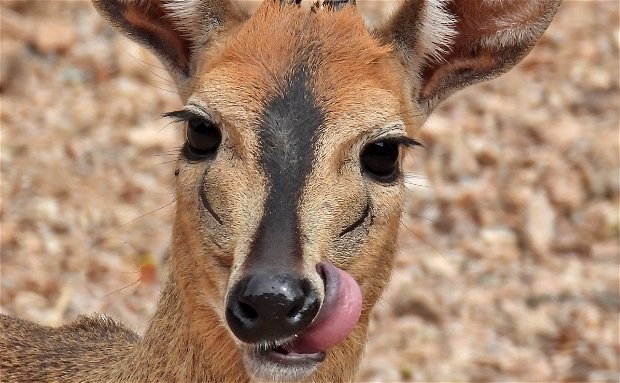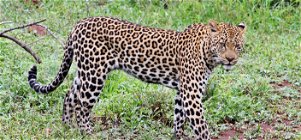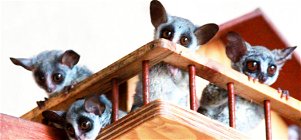THE (UNCOMMON) COMMON DUIKER!

Anyone who has spent any time in the bushveld is bound to have seen a Grey Duiker, that cute but shy little antelope with the black racing stripe down its nose.
The racing stripe is not just for show either! This little animal is fast! It is difficult to measure its speed because it seldom runs in a straight line, usually jinking from side to side and diving into any cover it finds when it feels threatened. That’s where the name Duiker (Diver in Afrikaans) comes from!
They are monogamous and fiercely territorial, marking their territories with preorbital glands and other glands between their front hooves. Interestingly, female Duikers will aggressively chase other female Duikers off their territory and male Duikers do the same to other males! This even though a pair is usually only seen together at mating time. At other times it seems that they can’t stand being close to each other! Usually, male and female stake out different parts of their territory.
Females are larger than males, but only males have horns. They live for between 8 and 11 years in the wild. They are preyed upon by eagles, leopards, jackals, and pythons in the main. They are experts at staying motionless when they sense danger. When they do use their diving run to evade a predator, they have a loud snort as an alarm call to alert other animals.
They are considered by some experts to be the most successful antelope species in Africa. Their Jekyll and Hyde character might have something to do with that!
These little guys are omnivorous, you see! They eat virtually anything! Insects, lizards, frogs, and birds are as much a part of their diet as berries, fruits, leaves and grasses! They have even been observed eating carrion! This evolutionary adaptation allows them to survive and thrive in virtually every habitat on the continent.
The next time you see a Common Duiker when you’re in Marloth Park or the Kruger National Park, consider just how uncommon the Common Duiker really is!
In Marloth Park, stay at Needles Lodge, your safari accommodation!



Share This Post